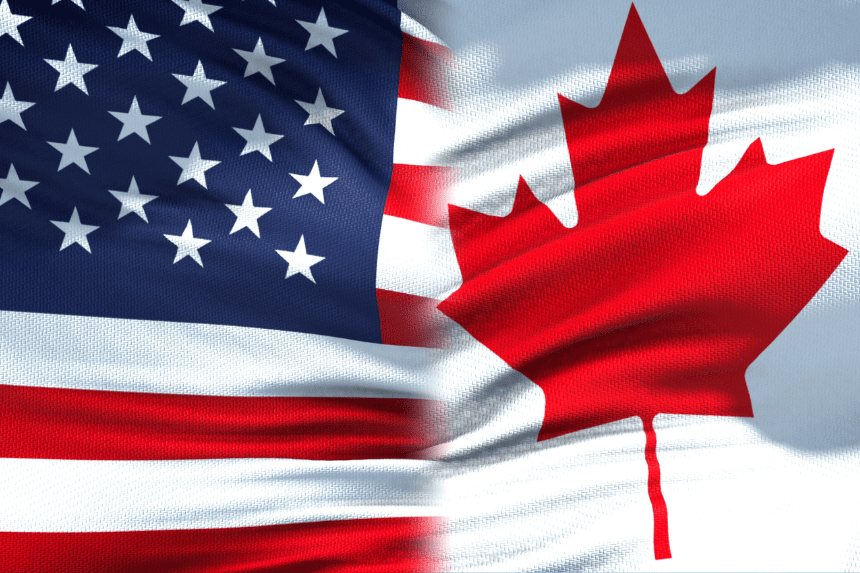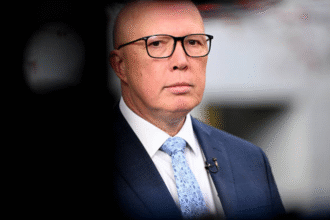- What Is Canada Telling the World?
- In what ways has Canada’s relationship with the monarchy changed over time?
- In this political theater, what part does King Charles play?
- What Role Does Trump’s Influence Play in This?
- What Has Changed in Canada Since the Last Monarchical Speech?
- What Reactions Are Canadians Having to the King’s Visit?
- Why Is This Visit Important for the World?
- Will the Royal Engagement Continue to Change?
- What Is the Future of Canada Affected by King Charles’ Support?
King Charles III’s visit to Canada raises important questions about unity and governance during a time of diplomatic uncertainty between the two countries. A combination of history, politics, and international relations puts King Charles in the spotlight as the first monarch to participate in Canada’s Parliament in almost 70 years.
His statements in both languages demonstrate that Canadians make their own decisions and are not influenced by pressure from other countries, including the US. The King’s visit demonstrates unequivocally that some people question Canada’s independence, primarily due to the harsh remarks made by former US President Donald Trump.
What Is Canada Telling the World?
In addition to being a nod to the monarchy, Prime Minister Mark Carney purposefully chose to have King Charles open the 45th Canadian Parliament. Donald Trump’s divisive policies and statements have repeatedly threatened Canada’s economic stability and independence, which is why Carney’s administration ran on a platform of opposing him.
Drafted on the Canadian government’s recommendation, King’s speech is expected to reiterate that Canada will “never” be for sale and will not become the “51st state” to join the United States. This bold declaration came after months of mounting tensions between Ottawa and Washington, including threats to trade relations and national autonomy.
Carney invites King Charles to demonstrate that Canada defines itself on its terms.
In what ways has Canada’s relationship with the monarchy changed over time?
The relationship between Canada and the British monarchy has always been complicated. The monarchy continues to be a cornerstone of the constitution, but how Canadians view it has evolved. The country has gradually moved closer to total legislative independence since Prime Minister Pierre Trudeau patriated the Constitution in 1982. But the monarchy and Canadian identity have never been completely divorced.
For many Canadians, particularly those from Quebec and indigenous communities, the Crown is a symbol of colonial legacies. On the other hand, some people view it as a sign of stability and tradition, especially in politically unstable situations. The Liberal prime minister’s invitation to King Charles reveals an astonishing paradox: a progressive leader is depending on the Crown to protect Canadian sovereignty. This change reflects a wider realization that, outside of the turmoil of political cycles, the monarchy can act as a neutral representation of continuity and legitimacy.
In this political theater, what part does King Charles play?
Despite being constitutionally apolitical, King Charles plays a very active role during this visit. He gives the message of the Canadian government authority and gravity as the head of state. Although Carney’s cabinet formally drafted the speech, the King is expected to make personal remarks emphasizing the importance of independence, democracy, and unity.
Given the monarchy’s long history of colonization, it is likely that his speech will honor Canada’s First Nations communities and recognize ongoing efforts at reconciliation. However, Canadian sovereignty will be the main theme.
A personal touch is added to an already politically charged occasion with King Charles’s first visit to Canada as monarch. The King truly has a great love for Canada and its people, according to those who have worked closely with him, including former diplomats.
What Role Does Trump’s Influence Play in This?
Donald Trump’s presence on the international scene is still erratic and divisive. In the past, his administration has devalued alliances like NATO, placed tariffs on Canadian goods, and even suggested that Canada might benefit more from joining the US.
The administration of Prime Minister Carney is adamantly against such rhetoric. Canada seeks to create a stark contrast by adopting the monarchy, a symbol that Trump himself finds appealing: it declares its independence while utilizing symbols that align with Trump’s personal beliefs. Refusing to provoke Trump directly is a smart diplomatic move.
King Charles and Canada both tread carefully in this area. It is not anticipated that he will directly criticize Trump. His message and presence instead act as a subdued but powerful critique of foreign influence on Canadian policy.
What Has Changed in Canada Since the Last Monarchical Speech?
When she ruled Canada in 1977, Elizabeth II gave the Speech from the Throne for the last time. Since then, the governor general has taken over the responsibilities of the monarch. It is extremely uncommon in history to witness King Charles’ visit in 2025, and it is highly symbolic.
Some Canadian prime ministers have been more interested in the monarchy than others since the 1970s. The government’s 2011 emphasis on royal customs drew criticism from many who felt that the events had nothing to do with everyday life. However, a lot of leaders today have distanced themselves from the Crown. Since the monarchy has returned, its function has changed from upholding long-standing national customs to serving as a means of Canadian identification overseas.
What Reactions Are Canadians Having to the King’s Visit?
In Canada, there are differing views on the monarchy. Some Canadians value the continuity and neutrality the monarchy offers, while others are critical or unconcerned, particularly in light of past injustices associated with colonialism. For instance, indigenous organizations are closely observing how the King handles treaty rights and reconciliation in his speech.
Bloc Québécois, a separatist group, is still vocally against royal ties and supports breaking with the Crown. Even the most doubtful audiences are captivated by the King’s visit, though, and it continues to garner national attention.
People in Canada want to know if the King will just read from a government script or if he will step up and give a speech that speaks to the diverse population of the nation.
Why Is This Visit Important for the World?
Not just at home, but everywhere, this is taking place. Canada’s ties to the UK and the Commonwealth are growing stronger as Western security alliances change and become less rigid. Many U.S. allies are thinking about shifting their opinions as a result of Trump’s unconventional diplomatic style in meetings with world leaders.
It is anticipated that King Charles’ visit will deepen Canada’s ties with Europe and present Canada as a strong, independent country on the international scene. The UK-born Prime Minister Carney, who has experience running a central bank, is demonstrating Canada’s desire to elevate its standing within the EU.
By demonstrating that leaders are abandoning isolationism and embracing participation in global movements, such a vote could ultimately have a significant impact on North American politics.
Will the Royal Engagement Continue to Change?
It is unclear if this occasion marks the beginning of a sustained resurgence of royal involvement in Canada. Although the King’s current visit is only two days long, it is extremely well-planned. According to the palace, it will be “an impactful one,” and the government sees it as strategic rather than merely symbolic.
In the future, it will rely on the political environment, public sentiment, and whether or not leaders believe that using the monarchy as a diplomatic and unifying tool is worthwhile.
This royal gesture is currently being praised as a timely demonstration of support for a country looking to reaffirm its identity on the international scene.
What Is the Future of Canada Affected by King Charles’ Support?
Canadian-American relations are changing significantly as a result of Charles III’s assistance to Canada in its interactions with Donald Trump. Canada uses soft diplomacy to make its point, bolsters its position, and highlights how it differs from its southern neighbor. Although some Canadians are unsure about the monarchy, there is no denying that this trip has political benefits.
Prime Minister Carney has brought history, politics, and international relations together to foster unity by allowing the monarch to open Parliament. According to King Charles, it’s a means of completing a task motivated by compassion and purpose.








